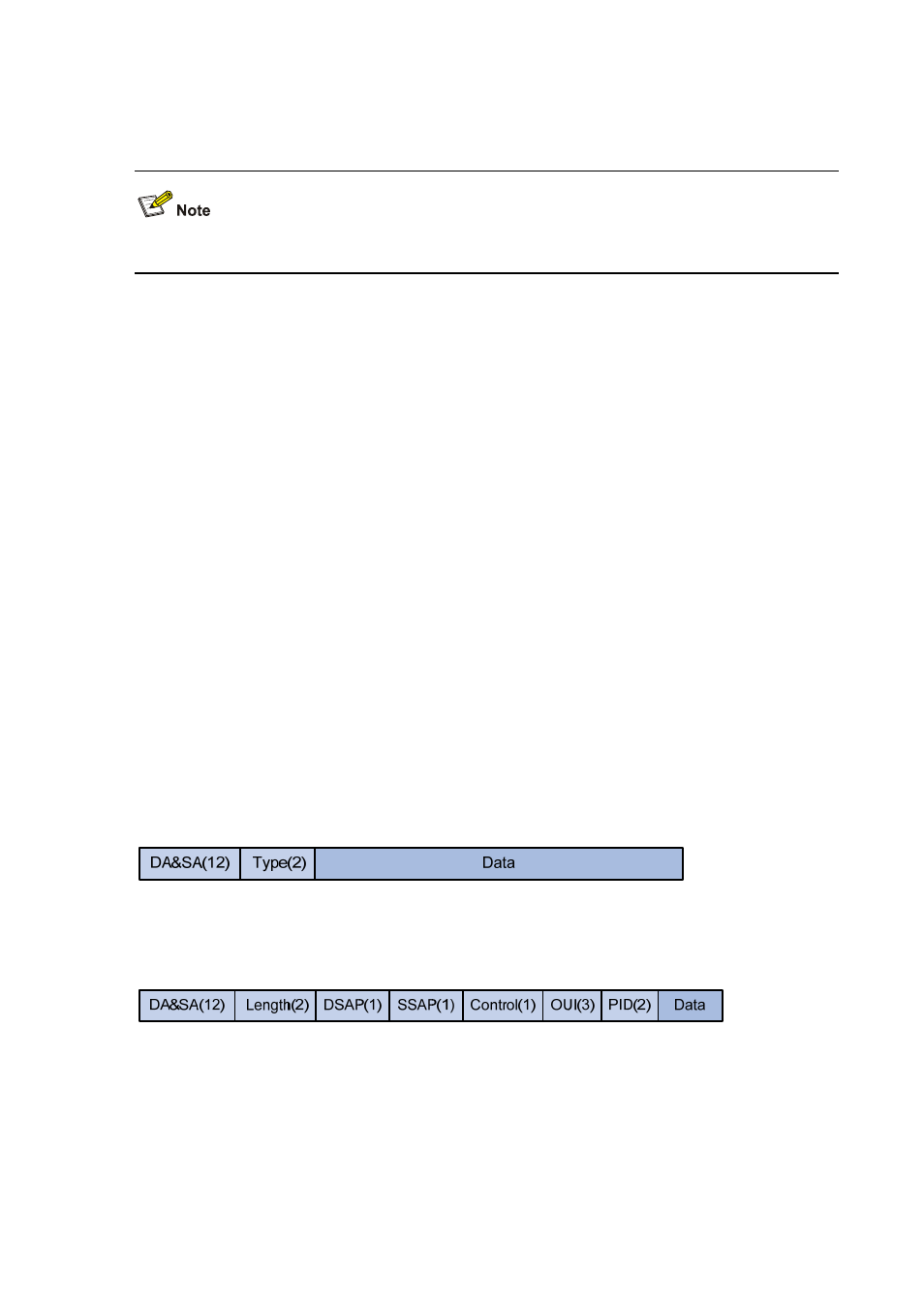Protocol-based vlan, Introduction to protocol-based vlan, Encapsulation format of ethernet data – H3C Technologies H3C S3100 Series Switches User Manual
Page 90: Ethernet ii and 802.2/802.3 encapsulation

1-8
Protocol-Based VLAN
The contents of this section are only applicable to the S3100-EI series among S3100 series switches.
Introduction to Protocol-Based VLAN
Protocol-based VLAN is also known as protocol VLAN, which is another way to classify VLANs.
Through the protocol-based VLANs, the switch can analyze the received packets carrying no VLAN tag
on the port and match the packets with the user-defined protocol template automatically according to
different encapsulation formats and the values of specific fields. If a packet is matched, the switch will
add a corresponding VLAN tag to it automatically. Thus, data of specific protocol is assigned
automatically to the corresponding VLAN for transmission.
This feature is used for binding the ToS provided in the network to VLAN to facilitate management and
maintenance.
Encapsulation Format of Ethernet Data
This section introduces the common encapsulation formats of Ethernet data for you to understand the
procedure for the switch to identify the packet protocols.
Ethernet II and 802.2/802.3 encapsulation
There are two encapsulation types of Ethernet packets: Ethernet II defined by RFC 894 and
802.2/802.3 defined by RFC 1042. The two encapsulation formats are described in the following
figures.
Ethernet II packet:
Figure 1-4 Ethernet II encapsulation format
802.2/802.3 packet:
Figure 1-5 802.2/802.3 encapsulation format
In the two figures, DA and SA refer to the destination MAC address and source MAC address of the
packet respectively. The number in the bracket indicates the field length in bytes.
The maximum length of an Ethernet packet is 1500 bytes, that is, 0x05DC in hexadecimal, so the length
field in 802.2/802.3 encapsulation is in the range of 0x0000 to 0x05DC.
Whereas, the type field in Ethernet II encapsulation is in the range of 0x0600 to 0xFFFF.
